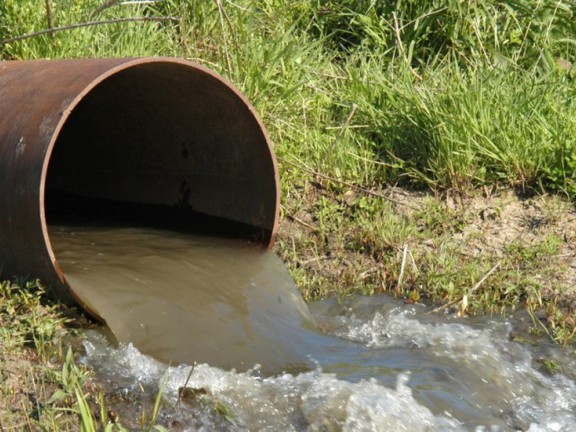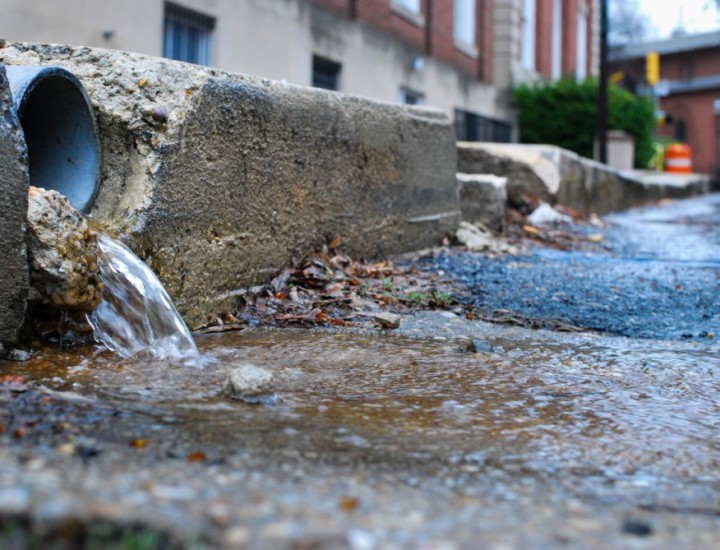Achieving Meaningful Accountability for Polluters in Maryland

Katlyn Schmitt, Center for Progressive Reform
Businesses that violate environmental laws and permits damage our air, land, and water, sometimes irreparably. Yet too often, these polluters aren't held accountable for harming the environment and public health. In Maryland, state officials don't respond to all violations, and, when they do, they aren't always successful. Even when they are successful, fines and other penalties don't necessarily result in behavior change. As a result, Maryland polluters are largely off the hook for the "externalities" of doing business.
To deter pollution, we need true accountability. We must ensure polluters pay for all harm done, whether to the environment, humans, and other species and habitats. Unfortunately, Maryland, like most other states, is a long way from achieving this goal. At CPR, we're tracking bills in the Maryland legislature that, if passed, would set the state on a path to greater compliance with environmental laws. These bills would:
Enforce data transparency
Environmental enforcement and compliance rates in Maryland have fallen to record lows over the last decade. The Maryland Department of the Environment's (MDE) 2020 Enforcement & Compliance Report reflects that downward enforcement trend. Some top findings:
- In 2020, MDE inspected 43 percent fewer sites and took one-third fewer enforcement actions than it did in 2019.
- MDE's Water and Science administration inspected nearly 400 fewer sites and collected about half as much in penalties, dropping from $1 million in 2019 to $530,000 in 2020. (Numbers have been adjusted according to the Consumer Price Index.)
- MDE increased inspections, audits, and spot checks for pollution in surface water discharge in 2020 but cut enforcement actions by more than half.
- MDE took only four enforcement actions for violations of erosion and sediment control rules in 2020, an alarmingly low number. In 2010, MDE took 96 such actions, the high watermark over the last 11 years.
Part of the problem is that MDE has lost over 13 percent of its staff over the last 20 years. Given the Herculean task of overseeing close to 209,000 permitted and regulated entities, the agency lacks capacity to ensure appropriate inspection, compliance, and enforcement measures.
Maryland Senate Bill 324 and House Bill 204 would provide greater access to environmental enforcement data, which the public needs to be an informed ally in the enforcement of our environmental laws. These bills would also help the public understand compliance trends and cumulative harms to the environment due to violations and know whether the state has taken action against suspected polluters. If enacted, these bills would enable Maryland residents and advocates to watchdog the state's environmental efforts, which is especially important given inadequate staffing and enforcement at the state level. Both bills are awaiting votes in their respective committees.
Expand 'citizen intervention' in Clean Water Act cases
Private citizens play a key role in the enforcement of the Clean Water Act. Two important mechanisms that enable them to do so include their ability to file suit against a polluter and to join a government lawsuit against a polluter (aka "citizen intervention").
But since a 2010 Maryland appellate court decision, residents and environmental organizations have lacked access to the courts through citizen intervention. Maryland Senate Bill 334 and House Bill 76 would reinstate citizens' right to intervene in state court proceedings in Maryland, a right enjoyed by residents of virtually every other state. The House of Delegates has approved the bill (92-40), and the Senate version is awaiting committee action.
Increase equitable access to public information
Residents and organizations often face challenges that prevent equitable access to public records. Some can't access requested information in a timely manner, and some are charged exorbitant fees for public information. Likewise, fee waiver requests are often denied to organizations that merit them.
A few years ago, Maryland created a Public Information Act (PIA) ombudsman to oversee disputes between government agencies and information requestors. While the ombudsman plays an important role in ensuring fair outcomes, Maryland's PIA law should be modernized to address ongoing challenges.
Senate Bill 449 and House Bill 183 would increase equitable access to public information housed in state and local agencies. It would give the PIA Compliance Board — an independent state agency — broader authority over fee disputes, including denials of fee waivers. These bills would also codify an integrated PIA complaint resolution process with the PIA ombudsman and require agencies to streamline and publish PIA disclosure policies, among other things. Both bills are awaiting votes in their respective committees.
Establish a constitutional right to a healthy and healthful environment
Maryland's patchwork of "environmental standing" laws — which determine who has the right to sue to protect the environment —grant standing to Marylanders only in limited situations. Standing is often limited to people who are directly impacted by government decisions and actions and those who experience specific harms to property or finances or who have been denied permits. For those who don't live next to impacted areas or operations, standing is often difficult, if not impossible, to establish.
Senate Bill 151 and House Bill 82 would create a constitutional right to a healthy and healthful environment and grant Marylanders the legal power to act on it. If passed, this legislation would make environmental protection mandatory — not just an aspirational goal that can be amended at any point in time.
Under these bills, Maryland officials would be constitutionally obligated to protect the environment and its impact on public health and legally prevented from permitting egregious harm to public natural resources. Ultimately, they would give Marylanders another important tool to hold polluters accountable. Both bills are awaiting votes in their respective committees.
This post was originally published on CPRBlog.

